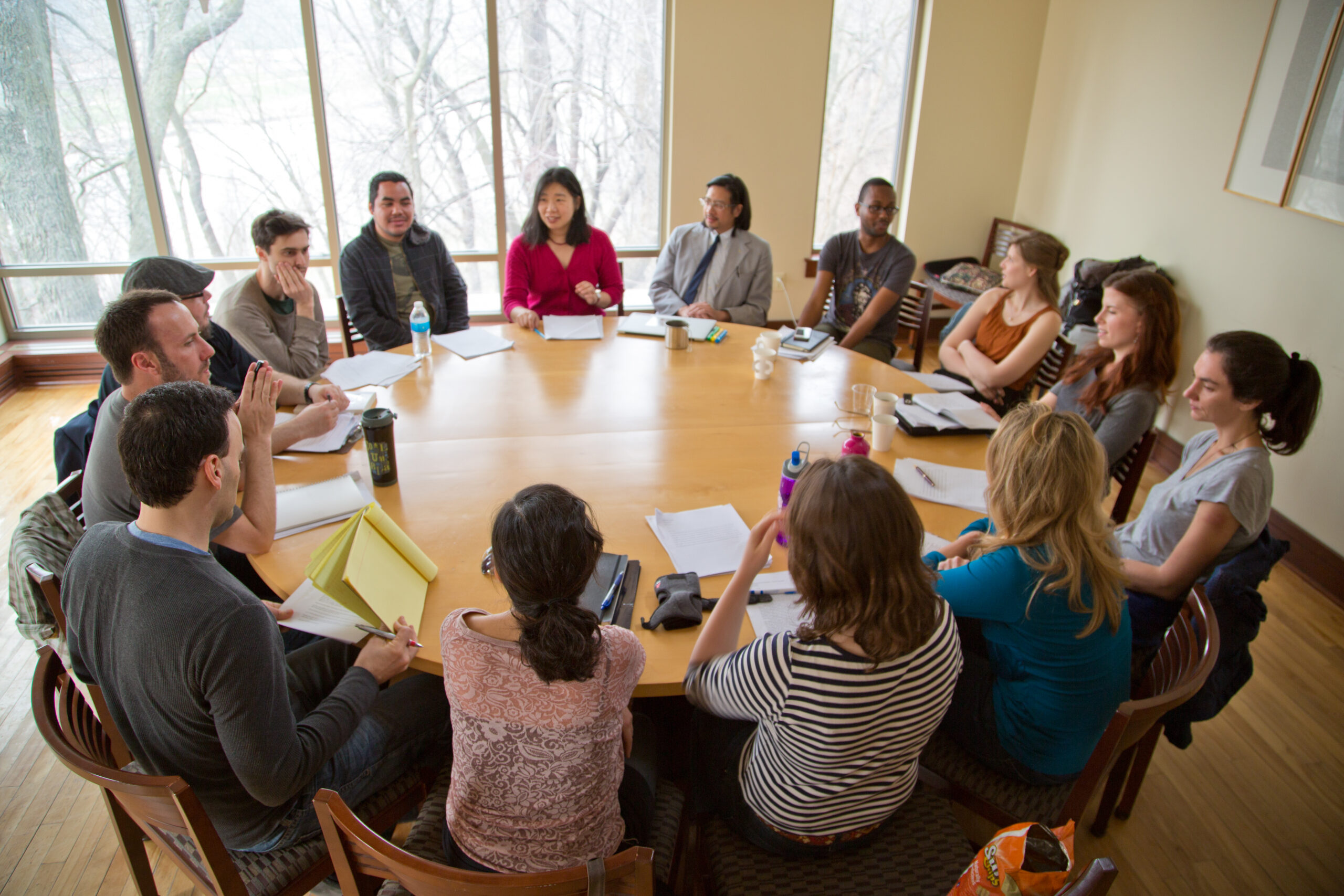What do John Irving, Rita Dove, Jane Smiley, Jenny Zhang, Raymond Carver, Sandra Cisneros, Flannery O’Connor, Leslie Jamison, W.P. Kinsella, and Yaa Gyasi have in common?
They’re just a few among generations of acclaimed writers who have honed their craft at the Iowa Writers’ Workshop. It’s not only the most prestigious program of its kind, it virtually defined the graduate study of creative writing as practiced today.
The two-year workshop is a program of the University of Iowa, in Iowa City, and bestows a Master of Fine Arts degree on students who complete the training. Founded in 1936, the program marked a new model of education in the arts.
DINA NAYERI, NOVELIST AND IOWA WRITERS’ WORKSHOP ALUM“There is something delightful in watching a Pulitzer winner giggle at a play-on-words, or muse about Faulkner, or eat ice cream and just be human.”
The idea that a university can and should accept creative writing — like a novel, or a collection of poetry — as the basis of an academic degree is now commonplace, but it wasn’t always so. The fact that America’s first M.F.A. program in creative writing took root in Iowa is testament to the Midwest’s longstanding commitment to the arts.

The Iowa Writers’ Workshop, which has inspired hundreds of similar programs, is based in Dey House, just a few hundred feet from the Iowa River. There, students meet for weekly roundtable discussions of one another’s work, led by faculty members prominent in their field.
“There is something delightful in watching a Pulitzer winner giggle at a play-on-words, or muse about Faulkner, or eat ice cream and just be human,” wrote workshop alum Dina Nayeri in Writer’s Digest. “It makes everything seem possible, that is worth two years of being here in person.”
While participants disagree as to whether there’s such a thing as an “Iowa style” of writing, historically the workshop has helped to shape the American literary voice: specific, personal, realistic. The program has spawned well over a dozen Pulitzer winners and several U.S. Poets Laureate.
“The program acts as a magnet,” former workshop director Frank Conroy told the National Endowment for the Humanities. Students are eager to join one of the most esteemed, enthusiastic writing groups in the world.
“There’s no distraction; it’s a close community,” Conroy continued. “They call each other at two o’clock in the morning to say, ‘You’ve got to hear this stanza I just wrote.’”
The literary life in Iowa City extends far beyond the walls of Dey House. The city is home to numerous literary presses, bookstores such as Prairie Lights, and multiple writing festivals each year. It was the first city in the Americas to be named a UNESCO City of Literature.
Despite the supportive surroundings, the workshop’s official philosophy is that its graduates’ success has more to do with their own talents than with anything they can learn from two years in Iowa.
“We continue to look for the most promising talent in the country,” the program’s administrators declare, “in our conviction that writing cannot be taught but that writers can be encouraged.”
